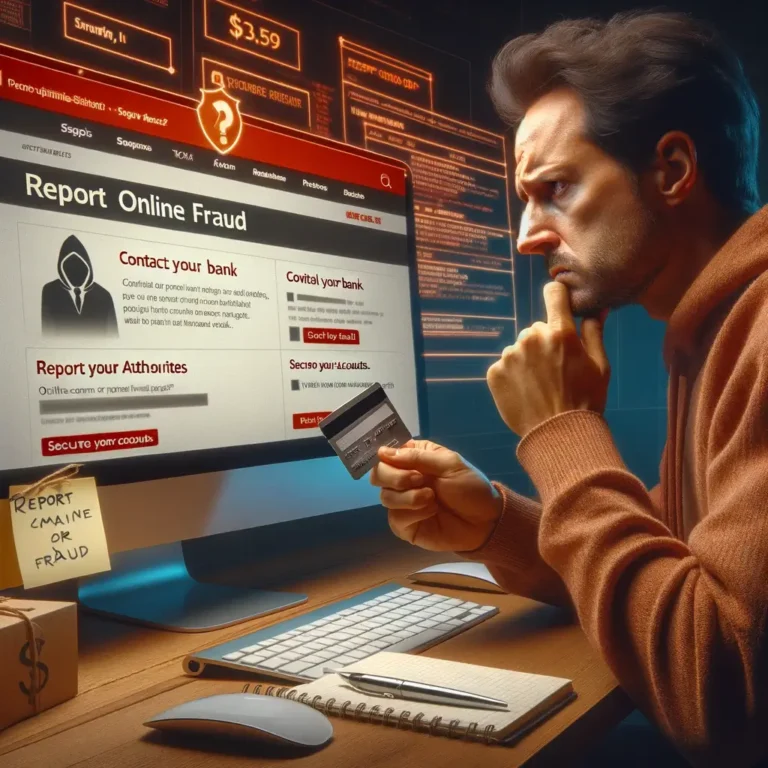In this article we have explained in detail How to handle a dispute with a credit card company over billing errors?.Have you ever checked your credit card statement and found a charge you don’t recognize? It’s a situation many face, but not everyone knows how to address it properly. In India, dealing with disputes over billing errors on your credit card can seem daunting. However, by following the right steps, you can handle it efficiently and effectively. This article will guide you through the process, ensuring you know exactly what to do when you spot an error.
Understand Your Rights
The Basics of Billing Disputes
Firstly, it’s important to know your rights. The Reserve Bank of India (RBI) has laid down guidelines to protect consumers from fraudulent transactions and billing errors. According to these guidelines, you have the right to dispute any unauthorized charges or errors on your credit card statement.
Reporting Time Frame
You should report any discrepancies as soon as possible, but no later than 60 days from the statement date where the error appeared. Prompt action ensures your dispute is acknowledged and processed without delay.
How to Handle a Dispute with a Credit Card Company Over Billing Errors in India
Step 1: Review Your Credit Card Statement
Regularly check your credit card statements for any transactions that seem incorrect or unauthorized. Identifying discrepancies early makes resolving them easier.
Step 2: Contact Your Credit Card Company
Once you identify an error, reach out to your credit card company. Most companies have a dedicated helpline for disputes and fraudulent transactions. It’s advisable to contact them immediately to report the issue.
Documentation is Key
When you report the error, be ready with all necessary details: the date of the transaction, the amount, and why you believe it’s an error. Providing detailed information helps the company investigate your dispute effectively.
Step 3: Follow Up in Writing
After reporting the issue over the phone, follow up with a written complaint. Include all relevant details and any supporting documents. Email is a fast and effective way to send your complaint, but keep a copy of all communications for your records.
Step 4: Know the Resolution Process
The credit card company is required to investigate your dispute, usually within 90 days. During this time, you’re not obligated to pay the disputed amount, but you must pay the rest of your bill to avoid late fees and interest on the undisputed amount.
If the Dispute Isn’t Resolved
Escalating Your Complaint
If you’re not satisfied with the resolution, or if the credit card company does not respond, you can escalate the matter. The Banking Ombudsman, appointed by the RBI, is an authority where you can lodge a complaint against your credit card issuer for disputes related to billing errors among other issues.
Documentation and Persistence
Keep detailed records of all communications and steps taken to resolve the dispute. Persistence is key; sometimes, these issues take time to resolve, but with clear documentation and steady follow-up, you’re more likely to reach a satisfactory outcome.
Conclusion
Disputing a billing error with your credit card company in India requires prompt action, clear communication, and patience. By understanding your rights, taking the right steps, and following up diligently, you can effectively handle disputes and protect your finances. Remember, the law is on your side, and there are mechanisms in place to ensure your dispute is fairly resolved.
FAQs on Handling Disputes with Credit Card Companies Over Billing Errors in India
1. What should I do if I find an unauthorized transaction on my credit card statement?
Immediately contact your credit card issuer to report the unauthorized transaction. Follow up with a written complaint via email or post, including all relevant details of the transaction.
2. How long do I have to report a billing error to my credit card company?
You should report any billing errors or unauthorized transactions within 60 days from the statement date where the error appeared.
3. Can I withhold payment for the disputed amount while the investigation is ongoing?
Yes, you are not required to pay the disputed amount during the investigation, but you should pay the rest of your bill to avoid late fees and interest charges.
4. What information do I need to provide when disputing a billing error?
Provide the transaction date, the disputed amount, the reason for the dispute, and any evidence supporting your claim.
5. How long does a credit card company take to resolve a dispute?
The investigation process usually takes up to 90 days, during which the company will review your dispute and provide a resolution.
6. What happens if the credit card company denies my dispute?
If your dispute is denied, you can ask for a detailed explanation. If still unsatisfied, you can escalate the matter to the Banking Ombudsman.
7. Who is the Banking Ombudsman?
The Banking Ombudsman is an authority appointed by the RBI to resolve complaints against banks and credit card issuers, including disputes over billing errors.
8. How do I contact the Banking Ombudsman?
You can contact the Banking Ombudsman through their official website, by email, or by post. Details are available on the RBI’s website.
9. Is there a fee for filing a complaint with the Banking Ombudsman?
No, filing a complaint with the Banking Ombudsman is free of charge.
10. Can I dispute a charge that I initially authorized but the merchant didn’t provide the service or goods as agreed?
Yes, you can dispute such charges as billing errors if the merchant fails to deliver the service or goods as promised.
11. What should I do if I lose my credit card?
Report the loss immediately to your credit card issuer to prevent unauthorized transactions. Follow the issuer’s procedure to get a replacement card.
12. How can I prevent unauthorized transactions on my credit card?
Regularly review your credit card statements, keep your card information secure, and use SMS or email alerts for transactions.
13. What if I find a recurring charge I previously canceled?
Contact the merchant to stop the charges and inform your credit card issuer about the dispute if the charges continue.
14. Can I dispute a transaction made by a family member without my consent?
Yes, unauthorized transactions, regardless of who made them, can be disputed. However, proving the lack of consent might be required.
15. What is the difference between a billing error and fraud?
Billing errors include unauthorized charges, duplicate charges, or incorrect amounts. Fraud involves unauthorized use of your credit card due to theft or loss.
16. Should I cancel my credit card if there are recurring unauthorized transactions?
First, try to resolve the issue with your credit card issuer. If unauthorized transactions continue, consider replacing your card.
17. What documentation should I keep when disputing a transaction?
Keep a copy of your dispute letter, emails, statements highlighting the disputed transaction, and any communication from the credit card company.
18. How do I ensure my dispute is taken seriously by the credit card company?
Provide clear, concise information about the dispute, follow up regularly, and keep records of all communications.
19. Can a dispute affect my credit score?
Disputing a transaction itself doesn’t affect your credit score, but ensure to pay the undisputed part of your bill on time.
20. What if I mistakenly dispute a transaction I later recognize?
Contact your credit card issuer as soon as possible to withdraw your dispute and clarify the situation.
21. Can I dispute an international transaction?
Yes, you can dispute international transactions just like domestic ones if they are unauthorized or incorrect.
22. How do I stop a payment on my credit card?
You can’t stop a payment once it’s processed. However, you can dispute the transaction if there are valid reasons.
23. What is a chargeback?
A chargeback is a return of funds to a consumer, initiated by the issuing bank of the instrument used by a consumer to settle a debt.
24. How do I file a complaint with the Banking Ombudsman?
File a complaint online through the RBI’s portal or send a written complaint directly to the Banking Ombudsman’s office.
25. Can I dispute a charge after paying my credit card bill?
Yes, you can still dispute a charge after paying your bill, but it’s easier to manage disputes before paying the disputed amount.
26. What if the merchant agrees to refund the disputed transaction?
Inform your credit card issuer about the merchant’s agreement to refund, and follow up to ensure the credit is processed.
27. How often should I check my credit card statements?
Review your credit card statements monthly to catch any unauthorized transactions or billing errors promptly.
28. What is zero liability protection?
Zero liability protection is a policy offered by many credit card issuers that ensures you’re not held responsible for unauthorized transactions.
29. Can I dispute a transaction that’s over a year old?
Most credit card issuers have time limits for disputing transactions. It’s unlikely that disputes for transactions over a year old will be accepted.
30. How can I protect my credit card information online?
Use secure websites for online transactions, enable two-factor authentication, and never share your credit card details over unsecured communications.














